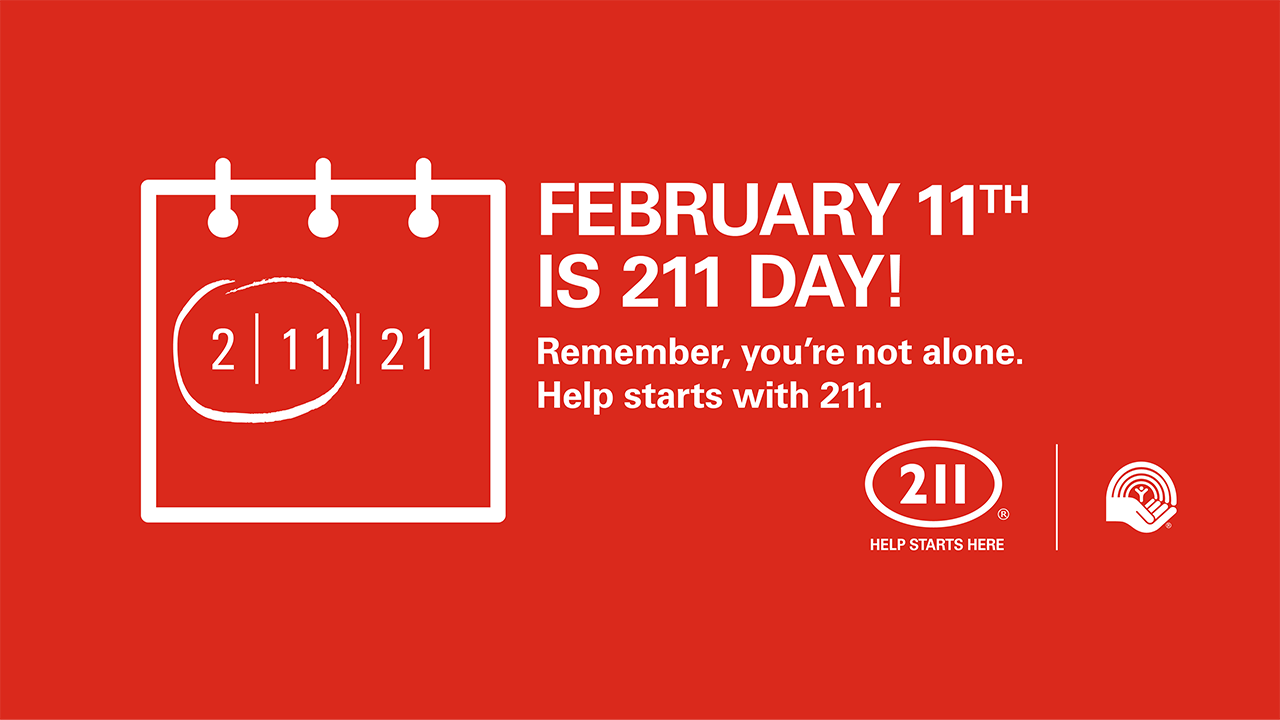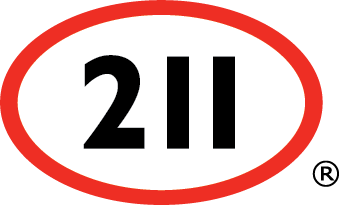United Way 211 National
Main Menu
INAUGURAL PAN CANADIAN 211 DAY!
February 11th is 211 Day across North America!
This year, for the first time, anyone living anywhere in Canada can pick up the phone and dial 2-1-1 to reach a Service Navigator for information on community-based health, social and government services in or near their community. The service is free, confidential, 24/7 in most of Canada and available in more than 150 languages.

It’s no coincidence that this major initiative was launched amidst the challenges Canadians are facing during the COVID-19 pandemic. On October 15, 2020 the Government of Canada, in partnership with United Way Centraide Canada, announced funding to activate the nationwide expansion of 211. The government also announced funding to support existing 211 services experiencing surging demand.
The needs people expressed in calls with 211 revealed some of the acute symptoms of the COVID-19 lockdown measures on the lives of Canadians. In April of 2020, 211 received more than nine times as many requests for food-related needs, and more than three times as many requests related to financial assistance relative to baseline call volumes in January and February of 2020. As Canadians grappled with the effects of COVID-19 on their lives, the national 211 network experienced a 30 per cent increase in total call volume over the previous year (March – December) and as the pandemic wore on, the needs expressed by callers shifted. In the second half of 2020, calls related to housing support and mental health and addictions rose sharply. By December, the number of requests related to housing had risen by one third relative to December 2019 call volumes, and requests for information and referrals for mental health and addiction services had doubled. Throughout the pandemic, 211 has and will continue to provide Canadians with help navigating the support services available during this challenging time.
“…We are proud to support programs and services, like the 211 telephone line and online directory. With the ongoing pandemic, the 211 service is more important than ever, helping get information about community services to the Canadians who need it.” Minister of Families, Children and Social Development, Ahmed Hussen.
For decades, United Way Centraide Canada has championed the creation and expansion of 2‑1‑1 services. Knowing where to turn when you are faced with challenges in your life is not often simple. 211 helps people to navigate the system and find support quickly and easily, which takes the strain off agencies and other services like 911 who would otherwise be handling these calls.

With a national 211 system and growing awareness of the service, we can also begin to analyze data about the types of services people are looking for by region, or even neighbourhood, which will help us, community service agencies, government, and others to better serve the specific needs of people in those communities and across the country.
Prior to the expansion, 211 was only available in British Columbia, Alberta, Saskatchewan, Ontario, Nova Scotia, Prince Edward Island, and most of Quebec. The first 211 was opened in 2002 in Toronto and expanded steadily to other provinces through funding support from local United Way Centraides and provincial and municipal governments.
Join us in celebrating 211 Day
Help us celebrate by sharing information about 211 and the potential it has to help so many people. Just take one of these simple actions to help spread the word:
- Add a 211 day frame to your Facebook profile picture.
- Download and print the 211 Day colouring sheet and post your own colourful 211 logo creation in your front window to inform your neighbours about 211.
-

Landmarks nationwide like the Sails of Light at the Port of Vancouver will be illuminated in Red to celebrate 211 Day! Visit one of the buildings, monuments, and landmarks participating in our nationwide United Glow! To celebrate the national expansion of 211, these major sites across Canada will join us by illuminating their facades in 211 red. If you live near one of the landmarks listed below, and it is safe to do so, consider taking a walk or drive to take a photo and share it on social media using the #211DayCanada hashtag.
- Share our 211 Day posts. Help us raise awareness for the service by sharing 211 Day messages posted by United Way Centraides or 211s on Facebook, Twitter, and Linkedin! Someone in your network might need help. Use #211DayCanada in your posts!
What is the difference between 211, 311, 411, 811, and 911?
These special numbers are assigned by the CRTC to make it easier for Canadian residents to find help when they need it, but it can be confusing if you aren’t sure which one to call.
By now, most of us are aware that 911 is the number to call for life-threatening emergencies; however, many Canadians are calling 911 for other reasons that are better handled by 211 Navigators. Chief Bryan Larkin, President of the Canadian Association of Chiefs of Police, says he and his members know first-hand the importance of ensuring more people know about 211 as a front door to support.
“Our frontline officers respond to calls for service from the community every day, not related to crime. The stress and anxiety brought on by the pandemic, an inability to feed or house yourself or your family, substance abuse, those are examples of real emergencies for people, and when they don’t know where to turn, they often go to the number they know best. But, we’re hoping increased access to 211, and a better understanding of the service will divert more of those calls to the helpline that can connect people to the support they need” says Chief Bryan Larkin.
211 is the number to call for information on community-based health, social and government services. It is the number to call when you need help but aren’t sure where to turn.
In large cities, 311 is the number established to access information about municipal services (such as by-law enforcement, road repairs, garbage collection, municipal recreation programs, property taxes, etc).
411 is the number that residents call for business or residential listings (phone book/yellow pages).
In some provinces, 811 is the number that residents call for help finding health information and services.

